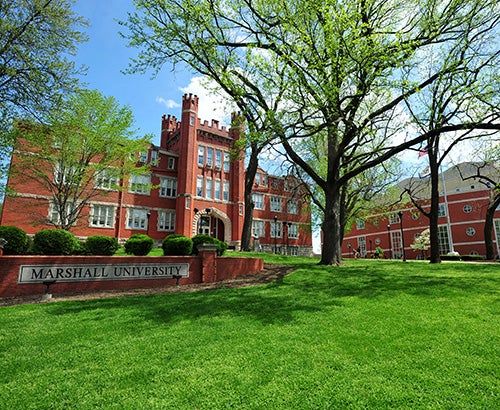In partnership with the West Virginia State Police Forensics Laboratory, Mountwest Community and Technical College (MCTC) and West Virginia Intelligence Fusion Center, Marshall will use the funds to build capacity at Marshall to address the needed training of state and local law enforcement officials in forensic science techniques – particularly in the technical areas of cyber forensics tools and processes and in FGG technologies. The grant extends through March of 2024.
The long-term goals of this initiative include supporting the state’s forensic science laboratories for both cyber forensics and forensic genetic genealogy in Huntington and training state and local law enforcement officials on a regional basis in modern tactical forensic techniques necessary for combating the growing incidence of both computer-based crime, as well as on DNA technologies to provide investigative leads in the effort to help solve criminal cases. The principal investigators (PIs) for this initiative are Dr. David Dampier, dean of the College of Engineering and Computer Sciences and director of the Institute for Cyber Security, and Jason Chute, director of the Marshall University Forensic Science Center.
The FTC will be operated as a subcenter of the Institute for Cyber Security (ICS). The associate director, John Sammons, is a former law enforcement officer in West Virginia who will serve as the lead investigator on the cyber forensics side of the FTC. Chute will serve as the associate director of the FTC and the lead on the Forensic Genetic Genealogy side of the FTC.
“Our law enforcement officers are rarely provided advanced training in solving computer crimes, even as the number of crimes involving technology like smartphones and computers is constantly rising. This grant gives us the opportunity to offer that training for free to law enforcement officers and help them be better prepared for solving these types of crimes,” Dampier said.
“As a former law enforcement officer, I can attest to the investigative power that digital evidence can bring to a case,” Sammons said. “It can often be the determining factor in proving someone’s guilt or innocence. As such, it’s imperative that our state and local officers be well versed in the identification, preservation, collection, and analysis of digital evidence. The real challenge comes from the often staggering speed of change in this field. Training like this is absolutely essential for officers to keep pace.”
“Acquiring the latest state-of-the-art technology in the field will not only allow us to provide training and research to law enforcement on the newest tools and techniques but will also establish a foundation in our operational laboratory allowing us to expand our current service offerings for criminal casework,” Chute said, “both of which will ultimately provide a safer community.”

